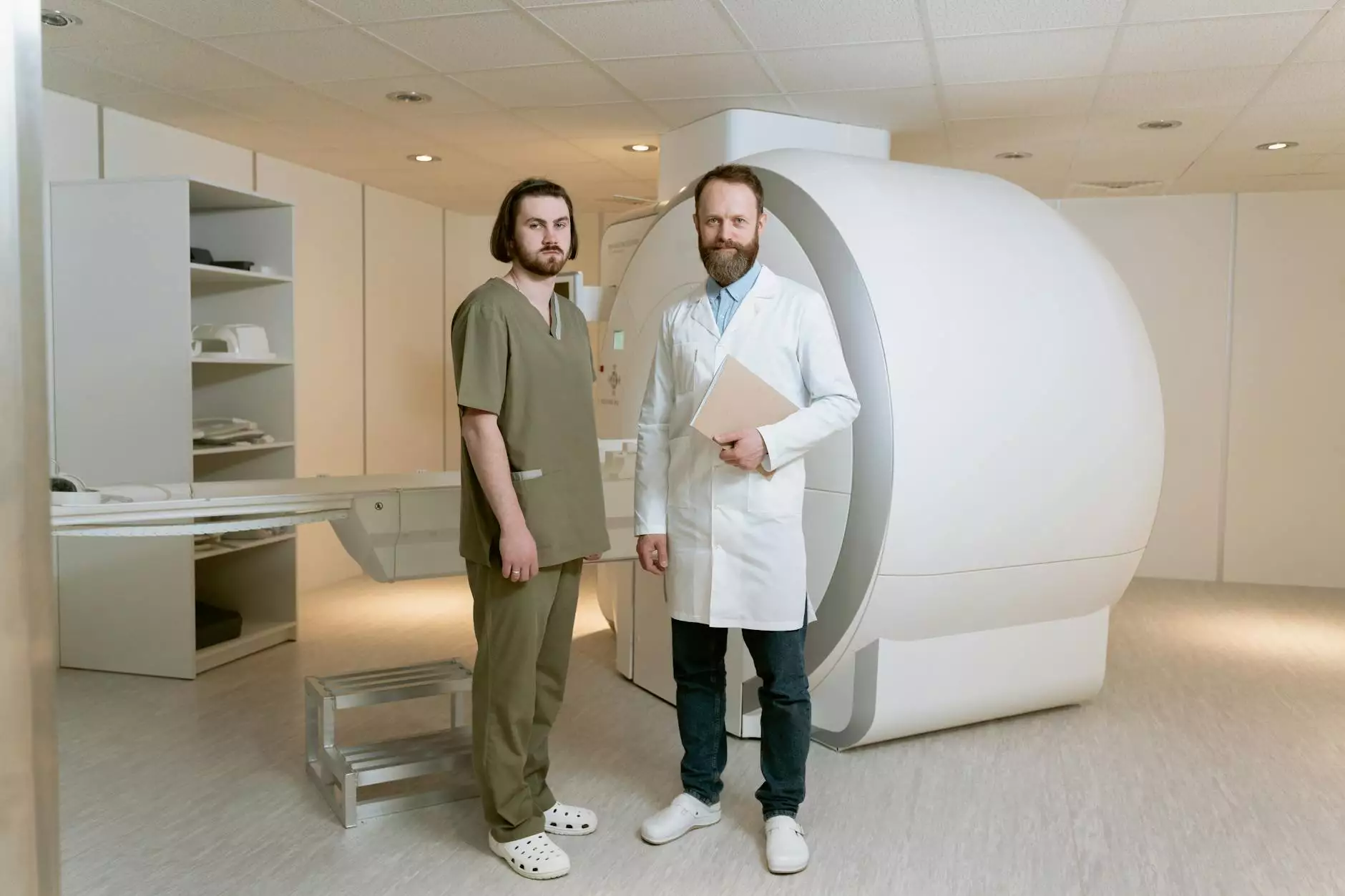Understanding CT Scans for Lung Cancer Diagnosis

The early detection of lung cancer is crucial for improving the chances of successful treatment. One of the state-of-the-art tools used for diagnosing lung cancer is the CT scan (computed tomography scan). In this comprehensive article, we will delve into the significance of CT scans, how they are performed, their benefits, and why they are vital in the fight against lung cancer.
What is a CT Scan?
A CT scan is a specialized imaging technique that utilizes X-ray equipment and computer technology to create detailed pictures of the body's internal structures. Unlike traditional X-rays, a CT scan provides cross-sectional images, allowing for a more comprehensive view of areas such as the lungs. This technique is particularly advantageous in identifying tumors, assessing their size, location, and whether they have spread to surrounding tissues or lymph nodes.
Why is a CT Scan Important for Lung Cancer Detection?
When it comes to lung cancer, early detection is critical. The following points outline why a CT scan is a cornerstone in lung cancer diagnosis:
- High Sensitivity: CT scans possess a high sensitivity rate in detecting lung nodules that may indicate the early stages of cancer.
- Detailed Assessment: They provide detailed images that help in assessing the lung anatomy, which is essential in planning treatment.
- Monitoring Progress: CT scans are also used to monitor the effectiveness of ongoing treatments, such as chemotherapy and radiation therapy.
- Pre-surgical Evaluation: For patients who may need surgery, CT scans help evaluate the lungs' condition and facilitate a tailored surgical plan.
The CT Scan Procedure
Understanding the CT scan procedure can help alleviate any concerns you may have if you are referred for this test. Here is a step-by-step overview of what to expect during a CT scan for lung cancer:
- Preparation: Your physician will provide you with specific instructions regarding any dietary restrictions. You may need to avoid eating or drinking for several hours before the scan.
- Arrival: Upon arrival at the imaging center, you will be greeted by qualified technicians who will explain the process and address any concerns.
- Positioning: You will be asked to lie down on a narrow table, which will then slide into the CT scanner's doughnut-shaped opening. Pillows and straps may be provided to ensure you remain still.
- Contrast Dye: In some cases, a contrast dye may be administered through an IV to enhance image clarity. If you're using contrast dye, you might experience a warm sensation.
- Imaging: As the scan begins, the machine will rotate around you, capturing multiple images from various angles. During this time, it is crucial to remain still and hold your breath briefly when instructed.
- Post-Scan: Once the scan is completed, you can resume your daily activities. It may take some time for the radiologist to evaluate the images and send a report to your physician.
Benefits of CT Scans in Lung Cancer Diagnosis
The use of CT scans for lung cancer detection comes with a multitude of benefits:
- Non-invasive: CT scans are non-invasive procedures that can provide critical information about the lungs and potential tumors without the need for surgical exploration.
- Speed: CT scans are relatively quick and can produce results in a matter of minutes, thus facilitating timely diagnosis and treatment decisions.
- Advanced Imaging Techniques: Advances in technology, such as low-dose CT scans, have led to reduced radiation exposure while maintaining image quality.
- Early Detection: Studies have shown that annual low-dose CT scans in high-risk populations, such as long-time smokers, can significantly reduce lung cancer mortality rates.
Potential Risks Associated with CT Scans
While CT scans are invaluable tools in diagnosing lung cancer, it is essential to be aware of potential risks:
- Radiation Exposure: CT scans involve exposure to ionizing radiation, which may increase cancer risk over time. However, the benefits usually outweigh the risks, especially in high-risk patients.
- Contrast Reactions: In rare cases, individuals may have allergic reactions to contrast dye, which can range from mild itching to severe anaphylaxis.
- False Positives: CT scans can sometimes reveal nodules that are not cancerous, leading to unnecessary stress and further testing.
Advancements in CT Technology
The field of radiology continuously evolves, bringing about exciting advancements in CT technology. Some of the recent developments include:
- Low-Dose CT Scanning: As mentioned earlier, low-dose CT scans involve using lower radiation doses while maintaining diagnostic image clarity. This method is especially recommended for patients undergoing regular screening.
- 3D Imaging: New software techniques allow radiologists to create three-dimensional images of the lungs, enabling more precise tumor assessment and measurement.
- AI Integration: Artificial intelligence is increasingly used to assist radiologists in quickly identifying abnormalities and improving diagnostic accuracy.
Conclusion
In conclusion, CT scans play a pivotal role in the early diagnosis of lung cancer, a disease that remains one of the leading causes of cancer-related deaths worldwide. By providing detailed images of lung tissue, CT scans facilitate timely interventions that can significantly improve patient outcomes. As advancements in technology continue to enhance the effectiveness of these scans, healthcare providers like Hello Physio are committed to integrating the latest practices to offer the best possible care for patients at risk of or fighting lung cancer.
If you or a loved one are experiencing symptoms related to lung health, consult with a healthcare professional to discuss the possibility of a CT scan for lung cancer and understand your options for diagnosis and treatment.
Stay Informed and Take Action
At Hello Physio, we believe in empowering our patients with knowledge. For more insights on lung health and cancer awareness, consider the following resources:
- Health Articles - Comprehensive articles on various health topics.
- Sports Medicine - Information on how sports activities impact health.
- Physical Therapy - Learn about physical therapy and its benefits for recovery.









